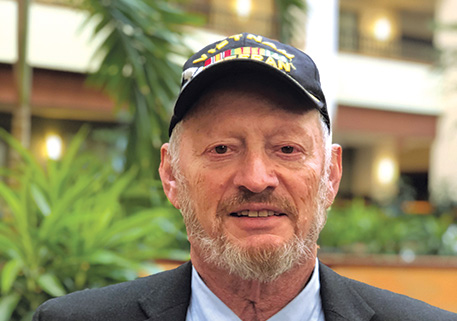Employers who hire veterans disagree with employers surveyed by study
A study released in July by communications and marketing firm Edelman revealed the majority of employers and civilians have an overwhelming positive regard for veterans but, at the same time, do not see them as assets within a community or workplace.
The report concluded the misconception that the majority of the nation’s veterans suffer from mental health issues are, in fact, barriers to their obtaining meaningful employment.
The study also found a growing disconnect between veterans and civilians, which can impact veteran employment or under-employment. According to Edelman, in 1980, 59 percent of the country’s CEOs had a military background but, as of 2014, that number is at 6 percent.
The results of the study concluded 92 percent of employers surveyed assumed veterans have some sort of mental health challenge, but only 16 percent of employers thought veterans had access to the mental health care they needed.
“These perceptions regarding mental health only hurt the veteran community and they are largely false,” said DAV National Headquarters Executive Director Barry Jesinoski. “In fact, this same study showed 33 percent of non-veterans and 43 percent of employers surveyed in the study themselves have experienced a mental health issue in the past year.”
According to The Centers for Disease Control, about 50 percent of Americans, regardless of veteran status, will face a mental health issue at some point in their lives and 43 million adults struggled with a mental health illness last year.
Some employers who make it part of their strategy to hire veterans said veterans are an integral part of their business, despite the findings in the Edelman study.
“Veterans provide solutions to our business problems and look for creative ways to overcome our business challenges; they are the consummate team players that every company covets,” said Dr. Vivian Greentree, Senior Vice President of Military and Veteran Affairs for the company First Data. “By recognizing these indispensable qualities, we have focused efforts on recruiting and retaining veterans and increased the number of military-affiliated new hires by 13 percent in two years.”
“Given the opportunity, veterans make great additions to any company in any field,” said James Cahill, President at Drexel-Hamilton. “We find that given an opportunity at a meaningful career, a veteran brings years of on the job training, real world experience and the ability to lead—which wasn’t taught in a classroom but was earned from their peers.
“These are the values many companies sadly overlook and instead focus more on the sacrificial wounds the veteran has received from answering the call to serve our nation,” Cahill said.
The invisible wounds of military service are over-imagined by the general public, according to data gleaned from the Bush Institute. In a study of non-veterans, 70 percent of adults in the United States agree the majority of the population does not understand the unique problems associated with military life and 40 percent believe at least half of the nation’s veterans have some sort of mental health issue.
This is contrary to data gathered by the Department of Veterans Affairs in August 2015, which found only about 10 to 18 percent of veterans returning from current deployments are at risk for mental health problems after service.
“The numbers tell the tale,” said DAV National Commander David Riley. “Veterans are not ‘broken shells of people’ because of mental health problems. I believe these findings illustrate the growing gap between military and civilian culture and the importance of our work to educate the public and prospective employers about the potential veterans bring as employees.
“Companies like First Data and Drexel-Hamilton regularly hire veterans and as such their businesses are reaping the rewards of the skills veterans bring,” Riley said.






